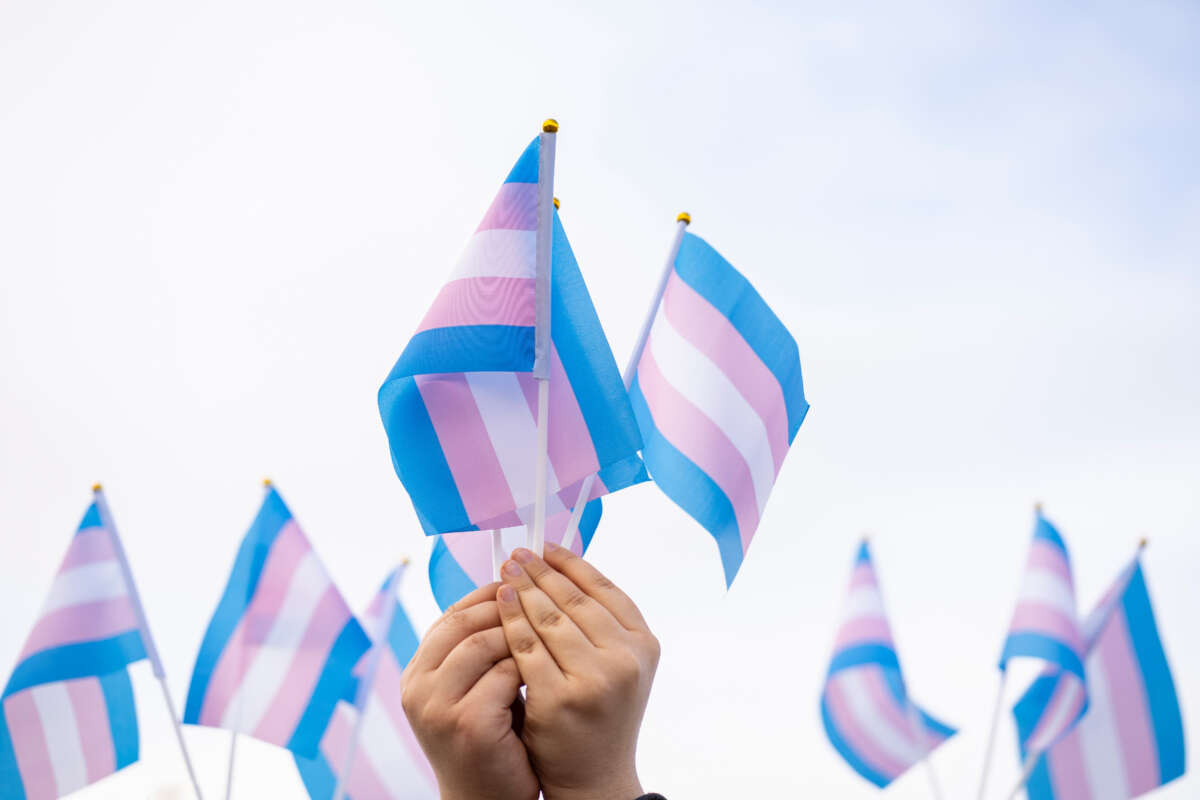Truthout is an indispensable resource for activists, movement leaders and workers everywhere. Please make this work possible with a quick donation.
A Republican lawmaker in North Dakota has introduced legislation that would bar organizations that receive state funds or grants from using the correct pronouns to refer to their transgender employees or clients.
LGBTQ advocates have called the bill an effort to “exclude [trans] people from participating in our communities.”
House Bill 2199, sponsored by state Sen. David Clemens (R), would require organizations in North Dakota that receive state funds — which range from K-12 public schools to nonprofit organizations — to refer to people using the pronouns that align with the sex on their birth certificate, even if those pronouns are incorrect. The bill would fine organizations and their employees $1,500 each time they refer to a transgender person using the correct pronouns.
The bill would forbid organizations from using the correct pronouns for trans people in everyday conversations and in official communications, including in their “policies, records, forms, rules, standards, procedures, guides, materials, instruction, training, correspondence, advertising, or marketing.”
Clemens claimed the proposal wouldn’t “outlaw an individual’s personal expression, but it does outlaw the use of public funds to promote or support anything that is contrary to a person’s biological sex at birth.”
“Say, they’re a boy, but they come to school and say they’re a girl,” Clemens said, utilizing anti-trans language. “As far as that school is concerned in this bill, that person is still a boy.”
Clemens said that a person could feasibly challenge the enforcement of the law, but that “the burden” of proving the appropriate pronouns were used would be on that individual — meaning that students in K-12 schools throughout the state would have that burden placed on them.
On Wednesday, the Senate Judiciary Committee heard public comments on the proposed bill, with more than 90 individuals giving public testimony against it. Clemens was the only person to speak in favor of the proposal. Although the committee voted to recommend that the bill be blocked, it now goes to the full state Senate floor for final consideration and a vote.
Human rights advocates lambasted the bill as bigoted and cruel.
“I see no way this law would pass any sort of legal challenge based on basic legal construction principles,” said Christina Sambor with the ND Human Rights Coalition. “It’s vague, fails to advance any legitimate state interests, and not only would cause impermissible, gender-based discrimination, its very purpose is gender-based discrimination.”
Although the bill is unlikely to pass, Republicans in the state legislature have introduced a slew of other anti-trans and anti-LGBTQ proposals for this year’s legislative session that have a real chance at becoming law. According to a count from the Transformation Projects, North Dakota Republicans have introduced at least seven anti-trans bills in total, a number that could increase in the coming days.
Clemens’s bill and others like it increase “the general atmosphere of hostility and hatred towards the transgender community,” said Katrina Jo Koesterman, president of advocacy group Tristate Transgender.
The anti-trans bills send “a dangerous message that we’re not welcome here,” Koesterman added.
As a result of the legislative attacks against transgender people in North Dakota, some residents are planning to flee not just the state but the country. “Everyone is really scared right now,” Zara Crystal, a trans North Dakota resident and organizer for TRANSport, a group that helps transgender people leave the U.S. for more inclusive countries, told The Daily Beast. “A lot of us are afraid of getting our rights or identities ripped away.”
A terrifying moment. We appeal for your support.
In the last weeks, we have witnessed an authoritarian assault on communities in Minnesota and across the nation.
The need for truthful, grassroots reporting is urgent at this cataclysmic historical moment. Yet, Trump-aligned billionaires and other allies have taken over many legacy media outlets — the culmination of a decades-long campaign to place control of the narrative into the hands of the political right.
We refuse to let Trump’s blatant propaganda machine go unchecked. Untethered to corporate ownership or advertisers, Truthout remains fearless in our reporting and our determination to use journalism as a tool for justice.
But we need your help just to fund our basic expenses. Over 80 percent of Truthout’s funding comes from small individual donations from our community of readers, and over a third of our total budget is supported by recurring monthly donors.
Truthout has launched a fundraiser, and we have a goal to add 231 new monthly donors in the next 48 hours. Whether you can make a small monthly donation or a larger one-time gift, Truthout only works with your support.
